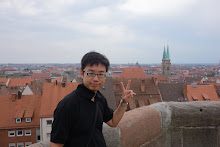The question appears to be in Chinese and translates to "On the inhumanity of humanity - from the perspective of God." While this is a complex philosophical topic, I can provide a brief overview based on the available information.
John Calvin's Perspective: According to a source (NUMBER:1), John Calvin's theological perspective suggests that although he emphasized self-denial and reliance on God, he did not entirely deny the inherent human nature. From a dual perspective, Calvin acknowledged the corruption within human nature but also recognized the potential for positive transformation through God's grace.
Human-Centered Views: Some individuals have a self-centered perspective and struggle to understand others (NUMBER:2). They may prioritize their own values above others, which can lead to a lack of empathy and understanding.
Kant and Purpose in History: Immanuel Kant's philosophy (NUMBER:3) incorporated teleological principles, asserting that finite human beings lack the infinite wisdom and all-knowing viewpoint of God. Therefore, humans must understand history through a teleological perspective, as they do not possess God's intuitive knowledge.
Environmental Ethics: Taylor's argument (NUMBER:4) highlights the importance of considering non-human elements in ethical discussions. He emphasizes that humans are just one part of the natural system and do not possess any special status.
Heidegger's Perspective: Martin Heidegger's philosophy (NUMBER:5) distinguishes between "unconcealment" and "concealment" and suggests that humans have lost their connection with the primordial truth. This may imply a departure from God's perspective.
Einstein's Critique: Albert Einstein's famous quote, "God does not play dice with the universe" (NUMBER:6), reflects his criticism of probabilistic interpretations in quantum physics. This perspective could be interpreted as a statement about the orderly nature of the universe from a divine standpoint.
In summary, the question touches on various philosophical and theological perspectives regarding the nature of humanity from both human and divine viewpoints. These perspectives range from theological interpretations by figures like John Calvin to discussions of human-centeredness, historical purpose, environmental ethics, and scientific views on the universe. The interpretation of humanity's nature and inhumanity from God's perspective is a complex and multifaceted topic that has been explored by philosophers, theologians, and scientists throughout history.
這是一個相當深刻的主題,涉及到哲學、宗教和人類學等領域。從上帝的視角來看人類,有不同的觀點和理解,這些觀點通常在不同的宗教和哲學體系中有所反映。
在基督教中,人類被認為是上帝的造物,有神性的成分,並賦予了自由意志。因此,人類有責任選擇道德和善惡,並受到上帝的審判。上帝視人類為祂的子民,並給予他們愛和關懷。
然而,在其他宗教或哲學體系中,對人類的看法可能不同。有些哲學家可能會討論人類的不完美和有限性,並質疑上帝是否存在,或者上帝是否對人類的存在有特殊的關注。
總之,論人類之不人類的問題是一個充滿爭議和深度的主題,不同的觀點可以從不同的文化和信仰背景中得出。了解不同觀點可以幫助我們更深入地思考人類的本質和存在意義。
ChatGPT - 網站和 YouTube 影片摘要
Summary
📜 Jean-Jacques Rousseau explores the origins of human inequality, arguing that societal organization creates inequality and erases innate goodness and happiness. His views on inequality sparked significant debate among scholars.
Facts
- 🏞️ Rousseau believes that in a state of nature, humans enjoy complete freedom and goodness, and societal structures lead to inequality, loss of goodness, and unhappiness.
- 🤔 Rousseau's theories on human inequality have sparked intense debates over the years, with some praising him as a champion of human dignity while others criticize him as a proponent of tyranny.
- 💡 Rousseau's description of the "state of nature" is based on data from explorers and naturalists, reflecting a common longing for a simpler, more virtuous past.
- 🤝 Rousseau's ideas were influenced by earlier and contemporary thinkers like Grotius, Pufendorf, and Hobbes, but he had a distinct perspective on the impact of civilization on human nature.
- ⚖️ Rousseau distinguishes between natural inequality (differences in physical and intellectual attributes) and artificial inequality (created by social systems, laws, and property).
- 😔 Rousseau argues that as humans enter civilized society, they lose their innate compassion and become morally corrupted, leading to a lack of empathy and even cruelty.
- 🌍 Rousseau's ideas on inequality remain relevant in discussions of social and political philosophy, particularly regarding the tension between natural and artificial inequalities in society.




沒有留言:
張貼留言